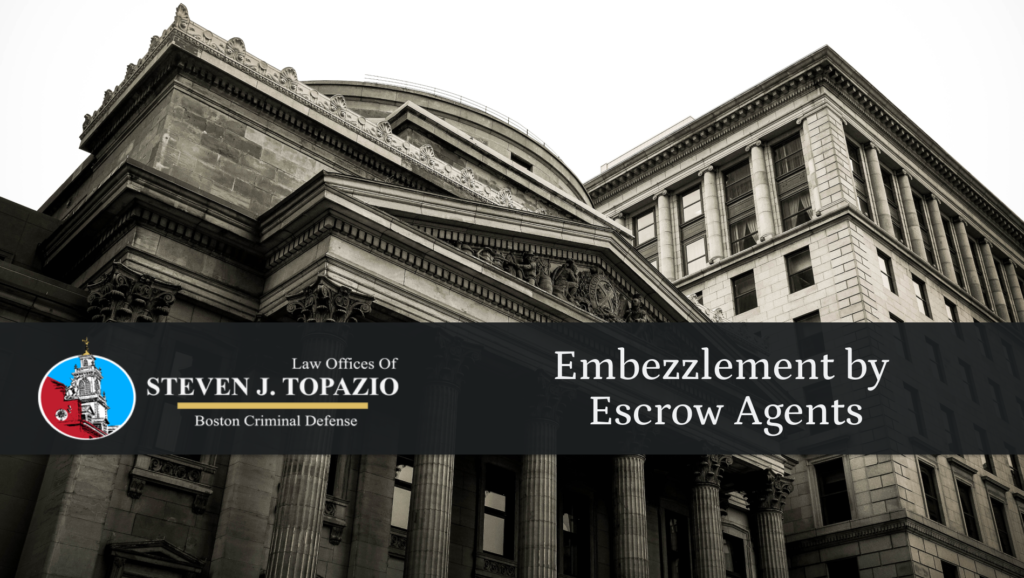Embezzlement by Escrow Agents
- Steven Topazio wrote this May 25, 2023 at 3:14 pm

In a recent case, the defendant, a building contractor, engaged through various business entities in the construction and improvement of residential homes. At the conclusion of a five-day trial, a Superior Court jury convicted each defendant of five counts of embezzlement of funds deposited with them by two customers, for the purpose of building a home. In accordance with purchase and sale agreements presented by the defendants for the construction of homes, the customers had advanced the funds to DeGennaro for placement in escrow accounts. The defendants depleted the escrow funds, and the building entities did not perform the promised construction. On appeal, DeGennaro contends, inter alia, that the fiduciary embezzlement statute under which the Commonwealth prosecuted him does not apply to the charged conduct, and that his conduct constituted only a civil breach of contract, not a criminal violation.
General Laws c. 266, § 57, enacted originally in 1877 and almost unchanged since then, provides in relevant part as follows:
“A trustee under an express trust created by a deed, will or other instrument in writing, or a guardian, conservator, executor or administrator, or any person upon or to whom such a trust has devolved or come, who embezzles or fraudulently converts or appropriates money . . . held or possessed by him for the use or benefit, either wholly or partially, of some other person or . . . for his own use or benefit or to or for the use or benefit of any person other than such person as aforesaid . . . shall be punished.”
The defendants argued that the statute aims specifically at highly formal and intensely regulated relationships of trust of the kind explicitly created by a deed or will or by the appointment of a guardian, conservator, executor, or administrator. They characterized their relationships between the Ghafaris and Daly, on the one hand, and their business entities, on the other, as the less formal and more general activity between a business and its customers. For several reasons the court found that interpretation unpersuasive and the statute applicable to their conduct.
Commonwealth vs. Peter Degennaro, 84 Mass. App. Ct. 420 (2013)
Building photo courtesy of Etienne Martin

